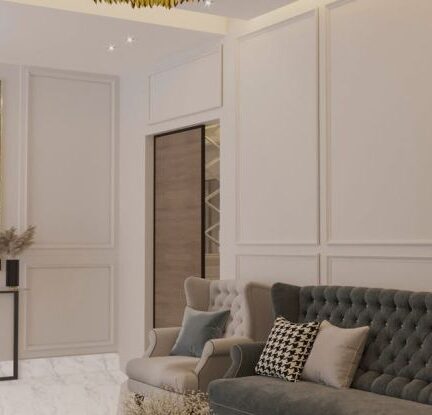In today’s fast-paced world, stress has become an almost inevitable part of our daily lives. The constant demands of work, relationships, and society as a whole can lead to overwhelming feelings of anxiety and pressure. Many people are turning to minimalist living as a way to combat this stress and find a sense of peace and calm in their lives. But can minimalist living truly reduce stress? Let’s explore this concept further.
**The Essence of Minimalism**
At its core, minimalism is about simplifying your life by focusing on what truly matters and letting go of excess. This can manifest in various ways, such as decluttering your physical space, reducing your possessions, or streamlining your daily routines. By embracing minimalism, you are essentially choosing quality over quantity and prioritizing the things that bring you joy and fulfillment.
**Reducing Physical Clutter**
One of the key principles of minimalist living is decluttering your physical space. A cluttered environment can contribute to feelings of overwhelm and stress, as it bombards your senses and creates a sense of chaos. By paring down your belongings and creating a more streamlined living space, you can promote a sense of calm and serenity in your surroundings. This can lead to a more peaceful mindset and a reduced sense of mental clutter.
**Financial Freedom**
Minimalism can also lead to financial freedom, another factor that can significantly reduce stress. By adopting a minimalist lifestyle, you are less likely to feel the need to constantly acquire new things or keep up with the latest trends. This can result in significant cost savings, as you become more intentional about your purchases and focus on acquiring only the things that truly add value to your life. Financial stability can bring a sense of security and peace of mind, alleviating stress related to money worries.
**Embracing Mindful Consumption**
Minimalism encourages a mindset of mindful consumption, where you are more intentional about the things you bring into your life. Instead of mindlessly accumulating possessions, you carefully consider each item and its impact on your life. This can help you break free from the cycle of consumerism and find contentment in what you already have. By shifting your focus from acquiring material goods to cultivating meaningful experiences and relationships, you can reduce the pressure to keep up with external expectations and find true fulfillment.
**Creating Mental Space**
In addition to reducing physical clutter, minimalist living can also create mental space for introspection and self-care. By simplifying your surroundings and daily routines, you free up mental energy that can be directed towards activities that nourish your soul and promote well-being. This can include practices such as meditation, journaling, or engaging in hobbies that bring you joy. By prioritizing self-care and mental health, you can better cope with stress and cultivate a sense of inner peace.
**A Shift in Perspective**
Ultimately, minimalist living is not just about decluttering your physical space; it is a shift in perspective that can transform your entire outlook on life. By embracing simplicity and focusing on the things that truly matter to you, you can reduce stress and create a sense of harmony and balance in your life. Minimalism encourages you to let go of societal expectations and embrace your authentic self, leading to a more fulfilling and purposeful existence.
**In Conclusion: The Power of Minimalism in Reducing Stress**
In conclusion, minimalist living has the potential to significantly reduce stress by promoting simplicity, mindfulness, and intentional living. By decluttering your physical space, embracing mindful consumption, and creating mental space for self-care, you can cultivate a sense of peace and balance in your life. Through minimalism, you can free yourself from the pressures of modern society and focus on what truly brings you joy and fulfillment. So, if you’re feeling overwhelmed by the demands of daily life, consider embracing a minimalist lifestyle and discover the transformative power of simplicity.
